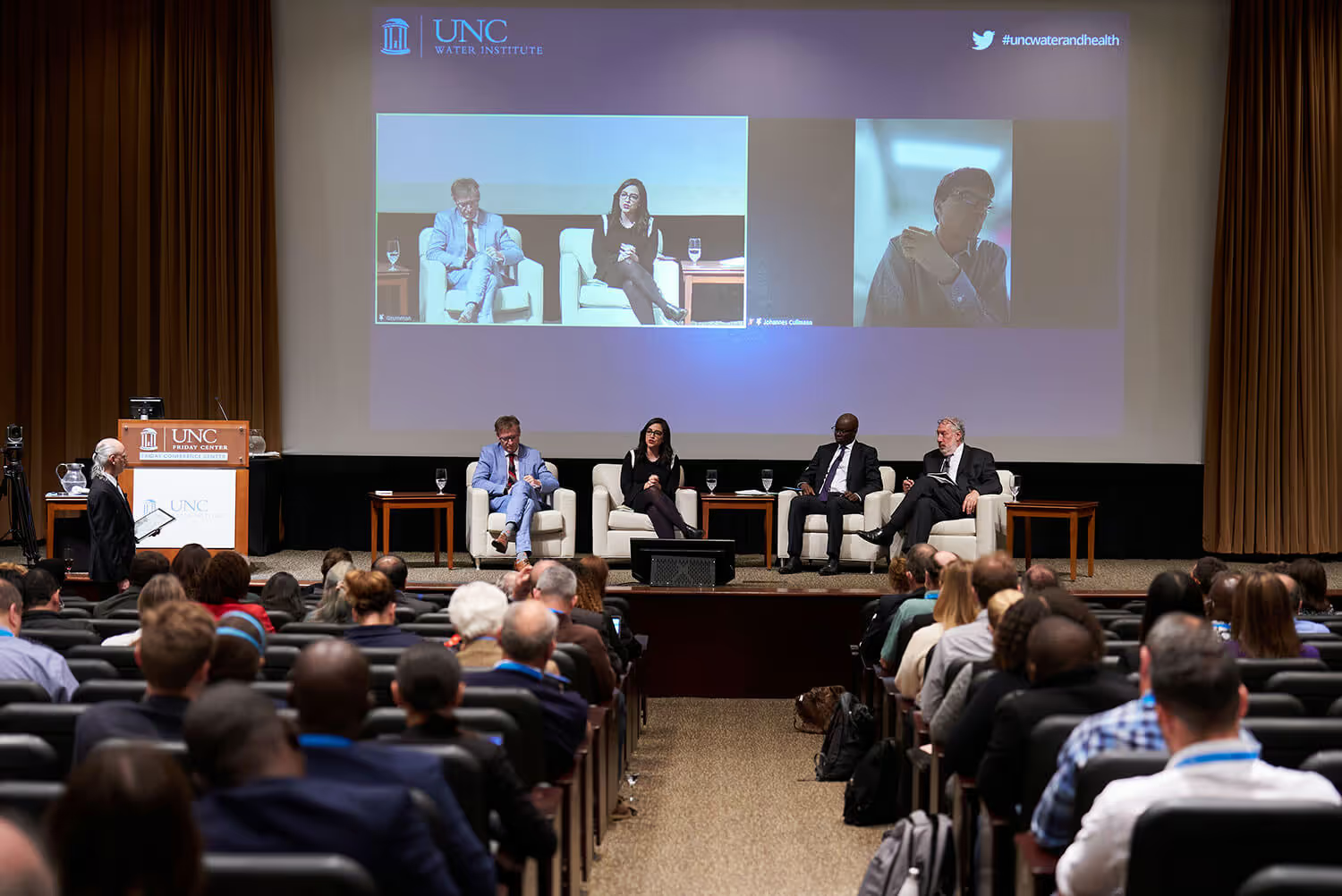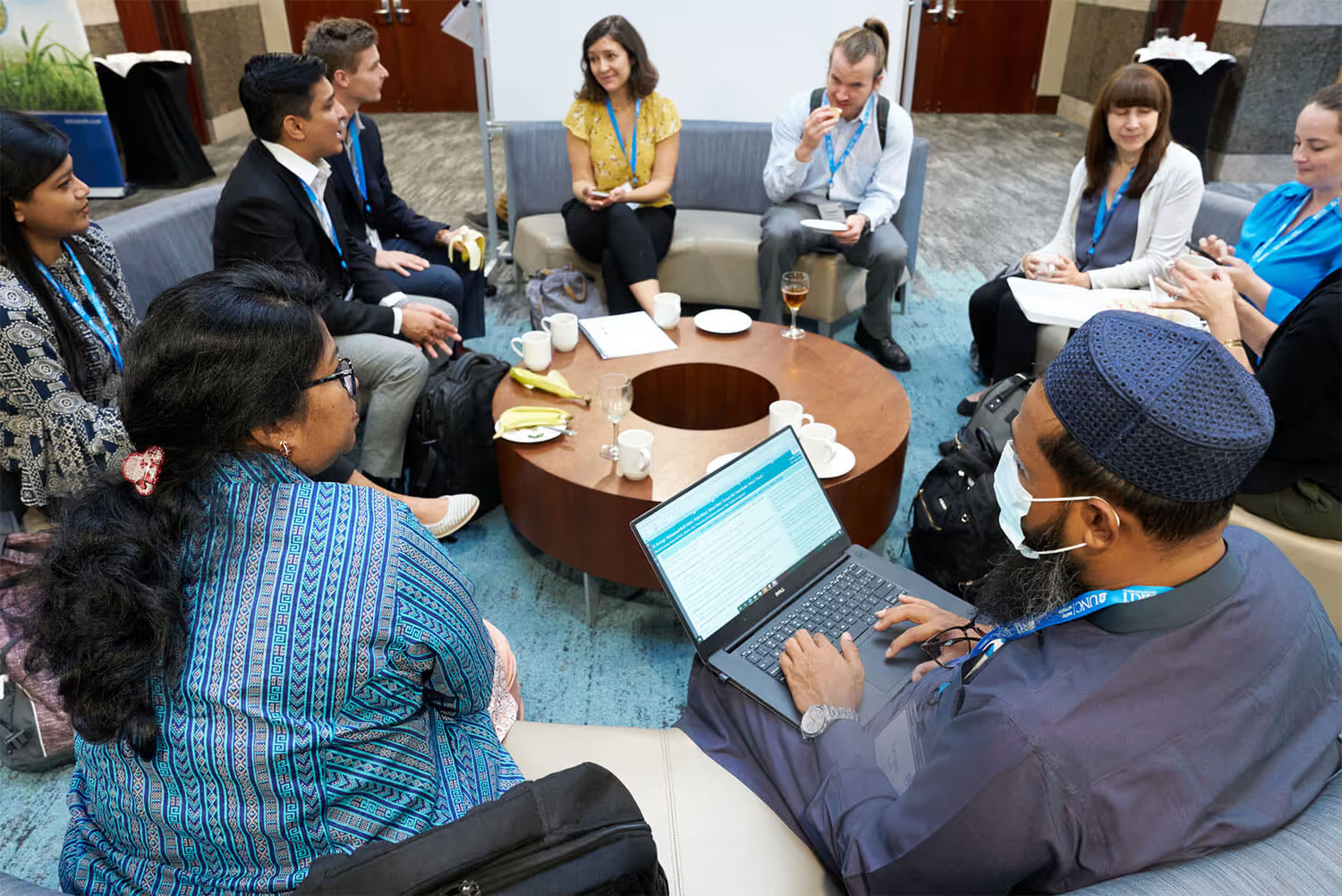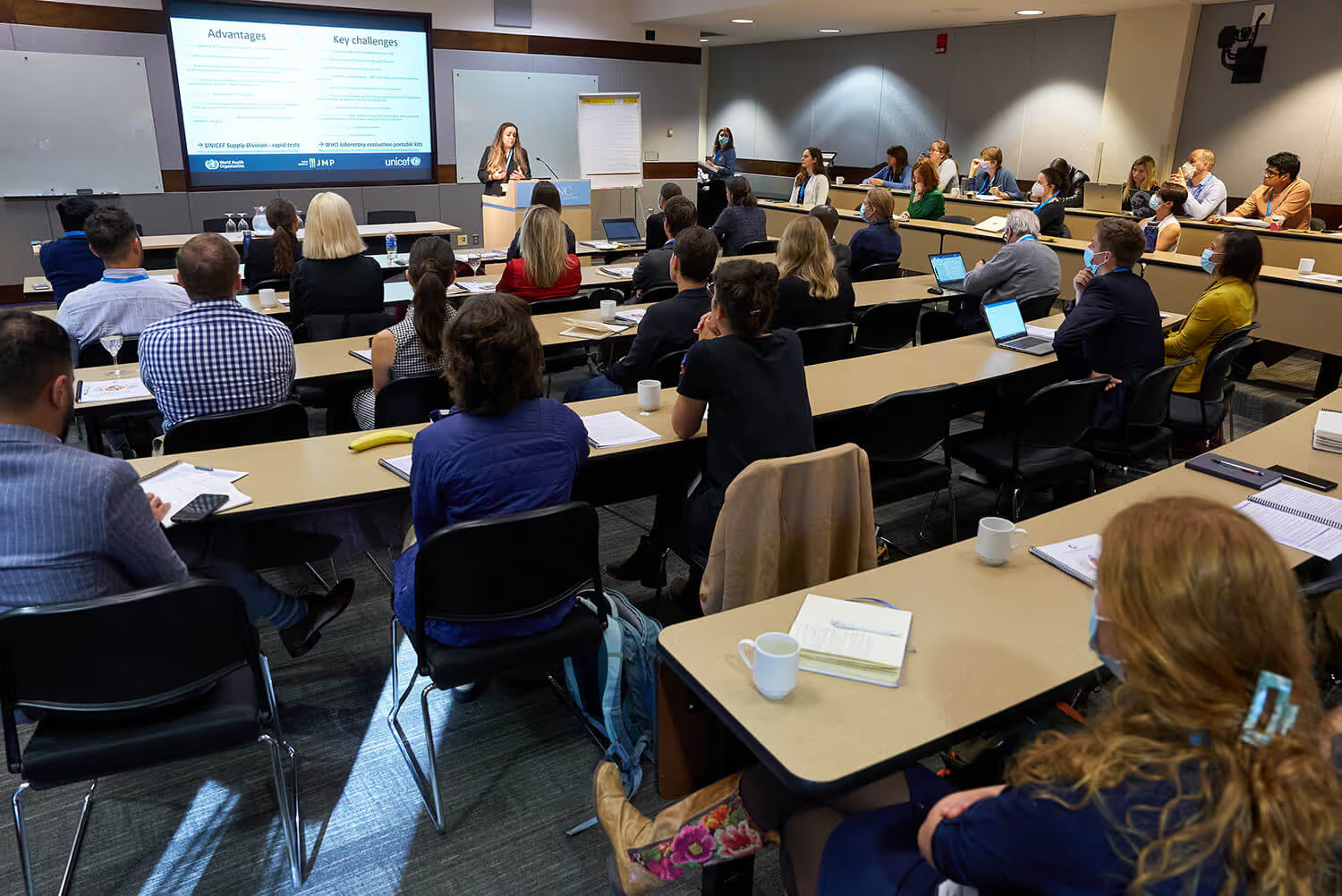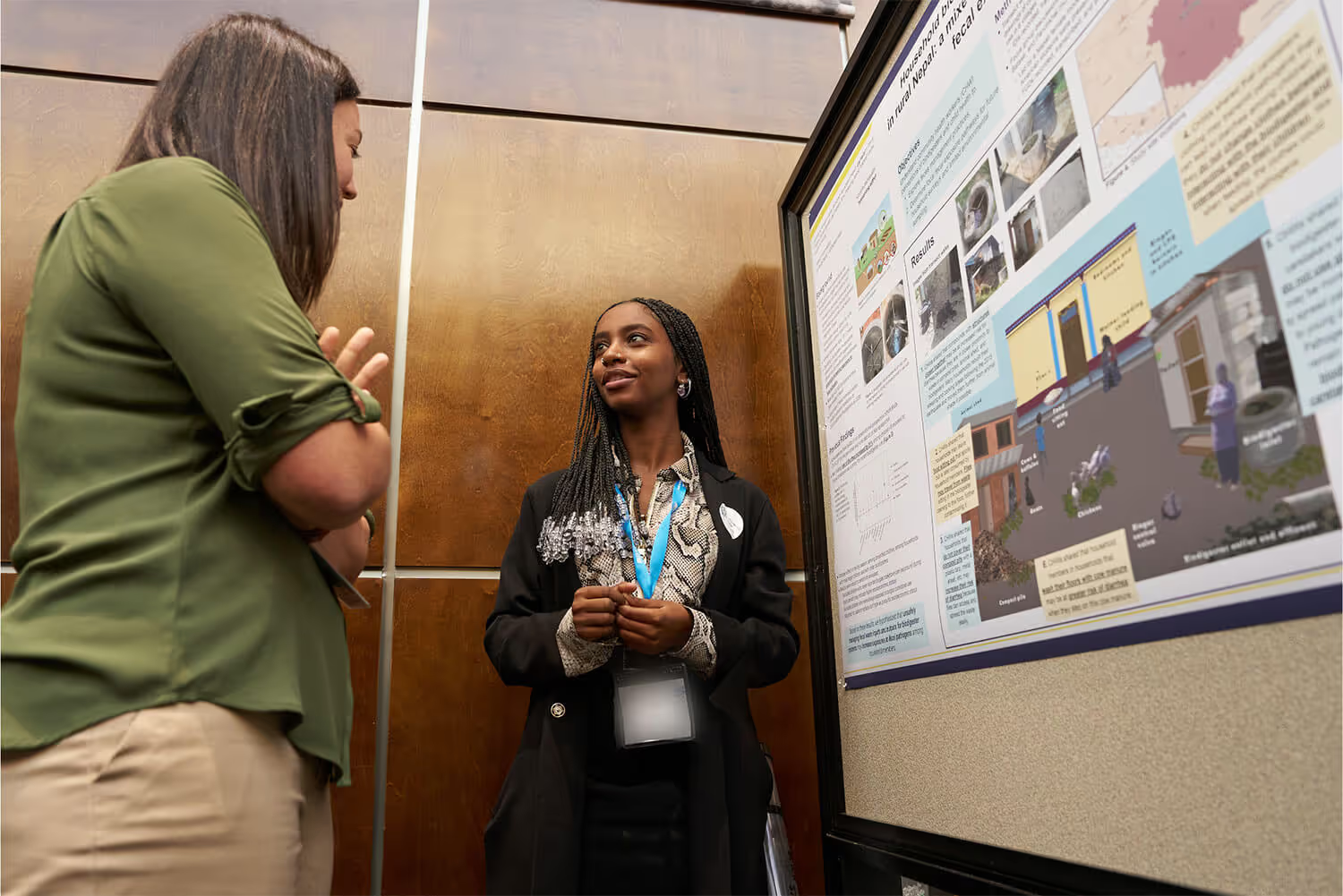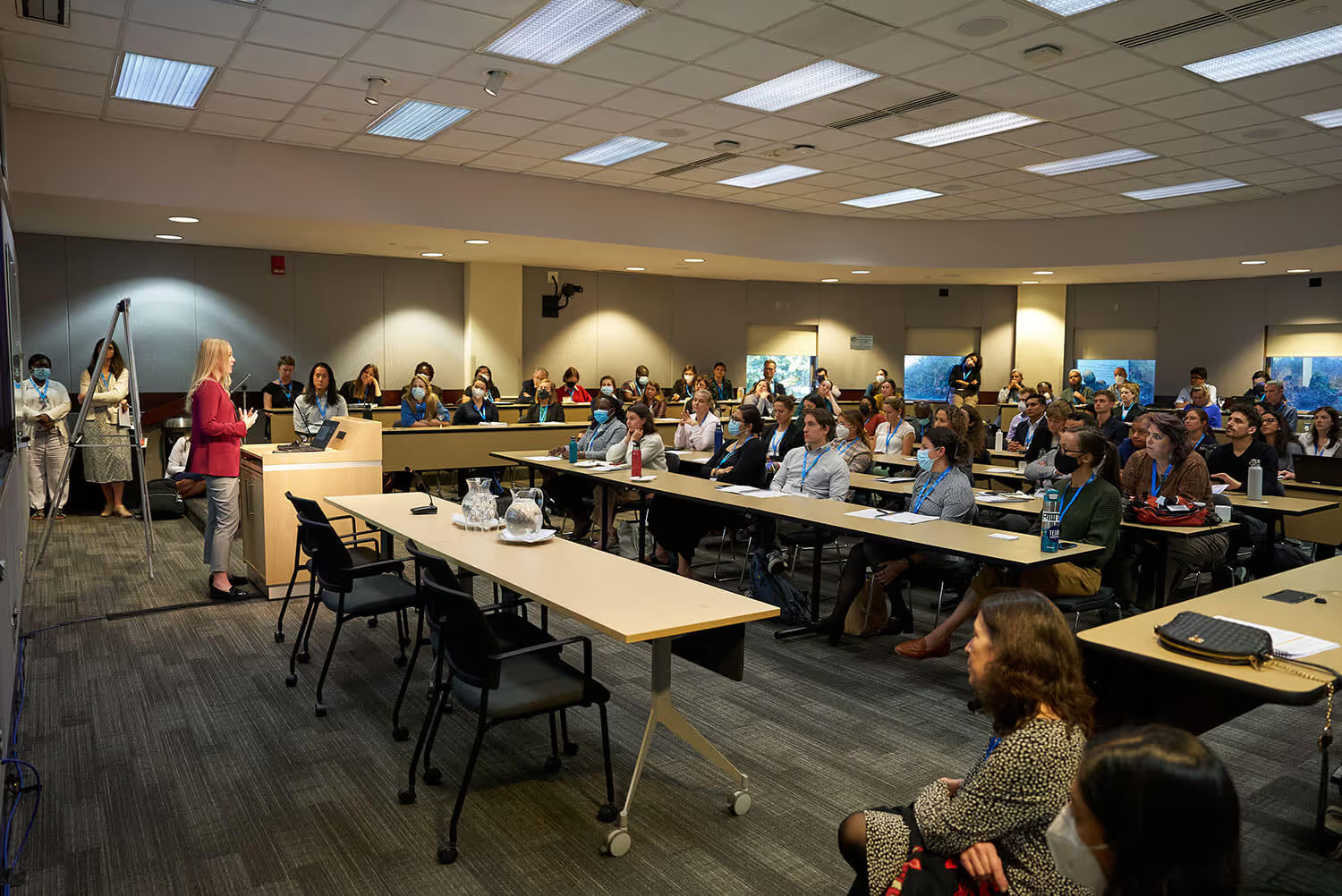About the Water and Health Conference
Since its founding in 2009, the goal of the Water Institute at UNC has been to inform the way the world works on water, sanitation and hygiene issues by generating the evidence that drives improvements in both practice and policy. The annual UNC Water and Health Conference is intended to advance these goals by creating a widely accessible space where policymakers, practitioners and researchers can gather to review the evidence, interrogate the science and improve old and develop new approaches to expanding WaSH access.
The 2023 UNC Water and Health Conference was a landmark event bringing together stakeholders from over 120 countries around the world with more than 2,800 people registering to attend the week-long event in virtual and in-person format. Hundreds of organizations including universities, governments, non-governmental organizations and private sector were represented.
The 2024 Conference will continue to explore the latest learnings around WaSH. The event will include plenaries, side events, workshops, verbal presentations and poster presentations.
SPECIAL CALL FOR ABSTRACTS: This Special Call focuses on the Unfinished Business of WASH in High-Income Countries. Themes that may be included under this topic include Environmental Justice, PFAS and Water Quality, Well Water and Onsite Sanitation, Agriculture and One Health, and Wastewater Surveillance. If you are working on research aligned with these or other relevant themes, please submit your abstract through the portal by the submissions deadline.
Writing a Successful Abstract
Please refer to the abstract submission rubric to present your research in the most effective way and to increase your chances of having your abstract ranked highly in the double-blind peer review process. These rubric criteria will be used by reviewers to score each abstract.
Your abstract should briefly explain key methods, results, and the importance and novelty of the research. It should be accurate, succinct, and readable. Keep it short and to the point (500 words maximum) and include:
- What (i.e., the focus): Clearly explain the idea or question your research addresses.
- Why (i.e., the purpose): Explain why your focus is important.
- How (i.e., methods): Describe how you collected information/data to answer your question.
- Results: Share your results — the information you collected. What does the data say?
- Conclusion: State your conclusion(s) by relating your data to your original question. Discuss the connections between your results and the problem. If your project is still 'in progress' and you don't yet have solid conclusions, use this space to discuss what you know at the moment (i.e., lessons learned so far, emerging trends, etc.).
NOTE: To assist you, we have made available all accepted and top scoring abstracts from the 2023 conference.
Reminders for Submitting Abstracts
- Research abstracts must be received by the deadline of May 3, 2024
- Abstracts must be submitted via the online forms
- Abstracts are limited to a maximum 500 words (submissions longer than this word limit may not be reviewed)
- Abstracts title is limited to 15 words
- Abstracts submission form must include abstract themes. Please select the most applicable themes to your research.
- Incomplete abstracts cannot be reviewed
- Multiple or duplicate abstracts submitted on a single study may be rejected
- Plagiarized works will be rejected, and authors will be reported to the abstract review committee
Abstract Decision Notification
- Notification regarding acceptance, waitlisting or rejection of abstracts will be sent to the presenting author by email by mid-July 2024, so providing an accurate email address is critical.
- If your abstract is accepted, you will receive an email that specifies whether it is accepted as a verbal or poster presentation for an in-person conference.
- You must RSVP to accept a presentation offer by the date specified. Abstracts are withdrawn if your RSVP is not received by the specified date OR if you or a co-author are unavailable to present in-person at the conference.
- To ensure our emails regarding your abstract decision reach your inbox, please add waterinstitute@unc.edu to your safe senders list.
First/Submitting Author Responsibilities
- The first author listed for each abstract serves as the primary contact for all correspondence regarding the abstract.
- All verbal and poster presenters must be present in-person and listed as a co-author on the submitted abstract.
- The presentation at the conference must reflect the submitted abstract. Specifically, the verbal or poster presentation title, authorship, and scientific content must match what was written in the submitted abstract.
Abstract Writing Workshop
Researchers with the Water Institute at UNC provide guidance on writing abstracts for the 2024 UNC Water and Health Conference, and answer questions related to abstract content, structure and formatting.

2023 conference resources and materials
- View the full event schedule
- Or view the one-page overview schedule
- Instructions for verbal presenters (PDF)
- Instructions for in-person poster presenters (PDF)
- Abstracts book (PDF)
- Local information (Google Sheet)
- The Jeroen Ensink Memorial Prize goes to Rowan Ellis and Anu Karippal! (View PDF announcement)

